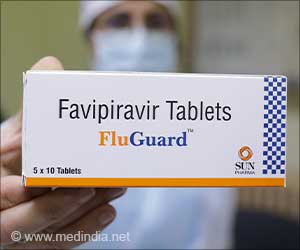Bipolar disorder during pregnancy is known to have harmful aftermaths on the baby as well as during the process of delivery. Robert Boden, in a study, assessed the impact of treatment on birth outcomes.
A person with bipolar disorders experiences severe mood fluctuations ranging from depression to mania. Generally, normal moods are noticed between troughs and peaks.Scientists are of the opinion that babies born to pregnant ladies with bipolar disorders are predisposed to preterm birth i.e. they are more likely to be born before 37 weeks of gestation.
Robert Boden et al conducted a study to assess the effect of administration of mood stabilizers for bipolar disorder in pregnant ladies on their off-springs. The study was published in BMJ, 2012.
Mood stabilizing agents such as lithium, antipsychotics and anticonvulsants are used in treating bipolar disorders.
The scientists from Uppsala University and the Karolinska Institutet in Sweden analyzed the risks and apprehensions of complicated pregnancy and birth outcomes in both untreated and treated pregnant women with bipolar disorders.
They enrolled 554 pregnant women with untreated bipolar ailments and 320 women who received proper treatment for bipolar disorders.
Factors such as smoking, weight, maternal age, cohabitation and diagnosis of substance use disorder or alcohol were taken into account while making the assessment of bipolar disorders.
The scientists also said that the risk of caesarean births, instrumental delivery and a non-spontaneous onset of delivery in mothers with bipolar disorders was37.5 percent of treated women, 30.9 percent of untreated women and 20.7 percent of other women.
Another important point observed by the researchers was that both untreated and treated pregnant mothers had 50 percent more chances of preterm births as compared to unaffected ladies.
As compared to unaffected mothers, the bipolar disorder affected mothers were more likely to deliver babies with small head (microcephaly) and with low serum sugar levels.
The researchers finally said, “Mood stabilising treatment is probably not the sole reason for the increased risk of adverse pregnancy and birth outcomes previously observed in mothers with bipolar disorder."
They further said that the “Exact role of treatment is still unknown because the ultimate outcome of pregnancy generally did not support a significant difference between untreated and treated" expectant ladies.
Dr Salvatore Gentile mentioned, the question is not "to treat or not to treat?" but "how to treat optimally?" There is no adequate risk-free drug available; the physicians choose the least harmful one.
He added that patients should be adequately counseled about the associated dangers and risks of treatment and the consultants should “encourage and facilitate social integration, especially for women from disadvantaged social groups and those who are isolated."
Robert Bodén finally said that both untreated and treated pregnant women with bipolar disorder were predisposed to high risk for infant morbidity and delivery complications, in contrast to women having no bipolar disorders.
Reference:
Risks of adverse pregnancy and birth outcomes in women treated or not treated with mood stabilisers for bipolar disorder: population based cohort study; Robert Boden et al; BMJ 2012
Source-Medindia














